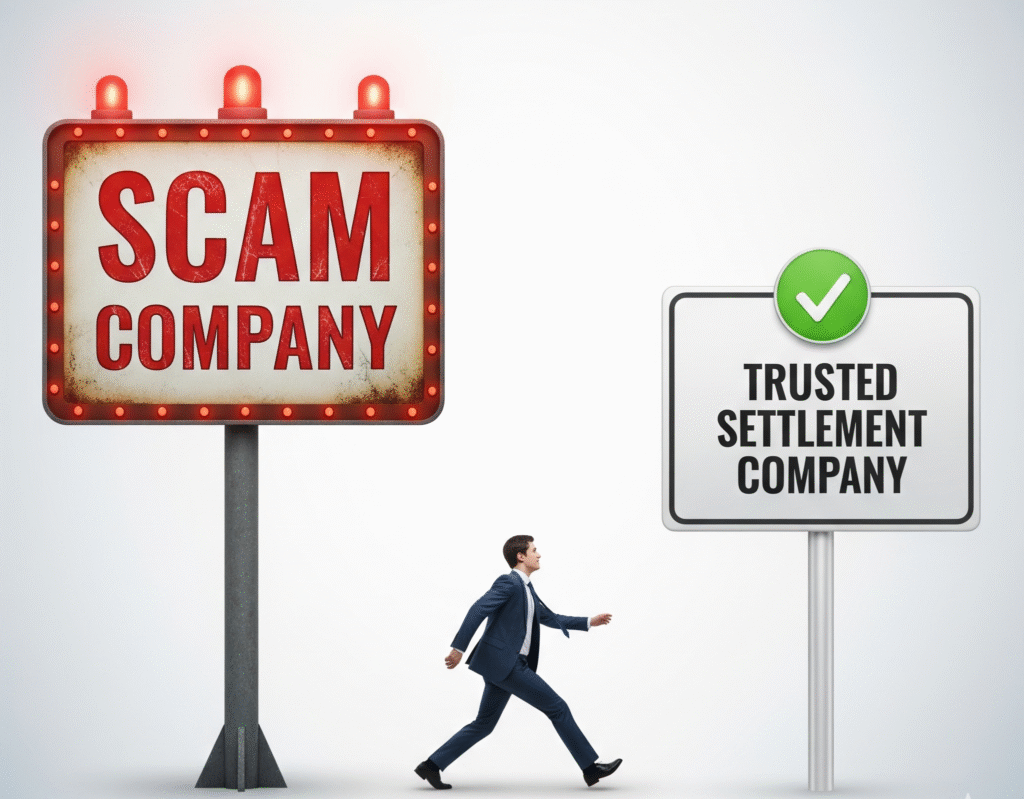Introduction: Why Selling a Structured Settlement Can Be Risky in 2025
Structured settlements are designed to provide long-term financial security, offering recipients steady payments over years or even decades. Yet, life can change, and many people choose to sell their structured settlement in exchange for a lump sum. While this can be a practical decision in certain cases—such as paying off debt, buying a home, or covering medical expenses—it also carries serious risks.

In 2025, more Americans are selling their structured settlements than ever before. With inflation, rising interest rates, and growing financial uncertainty, the temptation of quick cash is strong. Unfortunately, many sellers fall into common traps that reduce the value of their settlement and leave them with regret later on.
This guide highlights the biggest mistakes selling structured settlement owners should avoid in 2025, ensuring that you make informed, smart financial decisions.
Why Do People Sell Structured Settlements?
Before diving into mistakes, it’s important to understand why people sell. Common reasons include:
- Paying off high-interest debt.
- Funding a new business or investment opportunity.
- Covering urgent medical expenses.
- Buying a home or car.
- Managing financial emergencies.
While these are legitimate needs, rushing into a sale without strategy can result in losing tens of thousands of dollars.
❌ Mistake #1: Accepting the First Offer Without Comparison
One of the most common mistakes selling structured settlement recipients make is jumping at the first offer they receive. Settlement purchasing companies know this—many start with lowball offers hoping desperate sellers will agree.
👉 Tip: Always request quotes from at least 3–5 companies. Even a small difference in discount rate (for example, 6% vs. 10%) can cost you thousands of dollars over the life of your payments.
❌ Mistake #2: Working With Only One Company
Relying on a single buyer reduces your negotiating power. Some companies have hidden fees or unfavorable terms that only become clear later in the process.
👉 Tip: Research multiple firms, check their BBB (Better Business Bureau) rating, and read customer reviews before committing.
❌ Mistake #3: Ignoring Tax Implications
Structured settlements are often tax-free, but the situation changes when selling. Depending on state laws and IRS guidelines, some transactions may have tax consequences.
👉 Tip: Consult a tax advisor before selling. A proper strategy can help you avoid unexpected tax liabilities.
❌ Mistake #4: Selling Out of Panic
Financial stress leads many people to sell quickly, often at a steep discount. Rushing this decision can mean sacrificing future financial security for temporary relief.
👉 Tip: Consider alternatives like personal loans, refinancing, or partial settlement sales where you sell only a portion of your payments.
❌ Mistake #5: Skipping Legal Advice
Selling a structured settlement is a legal process requiring court approval. Without professional guidance, you may overlook key details in the contract.
👉 Tip: Hire an attorney experienced in structured settlement transfers. The cost of legal advice is small compared to the money you might lose without it.
❌ Mistake #6: Overlooking Small Rate Differences
A discount rate difference of just 1–2% might not sound like much, but over time, it can amount to thousands of dollars lost.
👉 Example: A $100,000 settlement sold at a 9% discount rate might yield $60,000, while at 7% you could receive $70,000. That’s a $10,000 difference.
❌ Mistake #7: Falling for Scams
Sadly, the structured settlement industry has its share of dishonest players. Fake companies, hidden fees, and predatory contracts can leave sellers with nothing.
👉 Tip: Always verify licenses, check independent reviews, and avoid companies that pressure you to “sign today.”
2025 Market Trends and Legal Updates
The structured settlement industry in 2025 is more regulated than before, but variations still exist between states. Some key updates include:
- Courts are becoming stricter in approving transfers.
- More transparency is being required from buyers.
- Online settlement marketplaces are growing, giving sellers more choice.
👉Best Companies to Sell Structured Settlements
Step-by-Step Guide to Selling the Right Way
- Evaluate your financial need – decide how much money you truly require.
- Shop around – get multiple quotes and compare.
- Check buyer reputation – focus on companies with proven track records.
- Hire legal/tax experts – protect yourself from hidden pitfalls.
- Consider partial sales – sell only the portion you need.
- Finalize with court approval – ensure the transaction is fully legal.
Conclusion: Protect Your Future
Selling a structured settlement can provide financial relief, but only if handled correctly. The most common mistakes selling structured settlement owners make—accepting the first offer, ignoring taxes, or rushing into the sale—can cost tens of thousands of dollars.
In 2025, with financial pressures mounting, it’s more important than ever to make careful, informed decisions. By comparing offers, seeking legal and tax advice, and understanding your options, you can protect your financial future and avoid costly regrets.



